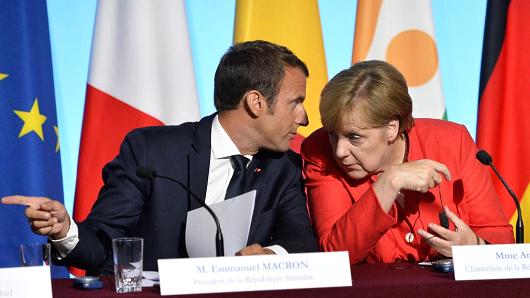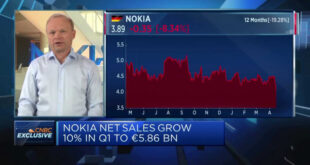
Aurelien Meunier | Getty Images
French President Emmanuel Macron and German Chancelor Angela Merkel during a press conference at Elysee Palace on August 28, 2017 in Paris, France.
The European Council is expected to give the green light to proposals to transform the European Stability Mechanism (ESM) into a European Monetary Fund, similar to the International Monetary Fund (IMF), and to continue the banking union — a set of rules to supervise European banks — in June.
But the instability in Italy could derail the timeline. “Italy has set the agenda back,” said Haralambous, adding that without a government in place in the euro zone’s third largest economy, it is “unlikely” that there will be real progress in three months’ time.
In the meantime, there are growing voices in different capitals cautioning against further integration.
Finance ministers of eight European countries, including Ireland, the Netherlands and Finland, wrote a letter earlier this month arguing that member states should focus on “implementing structural reforms” and “respecting” European fiscal rules —which stipulate ceilings for deficit and public debt —rather than promote changes at the European level.
“Decision-making should remain firmly in the hands of member states,” they said in the letter, advocating that this is how to “regain public trust” and fight back against populism.
Although the new German government is expected to support, alongside Macron, the push for further euro zone reforms, new measures will also have to be approved by other countries. Speaking last week, Dutch Prime Minister Mark Rutte said: “It’s not a French-German Europe,” indicating that the Netherlands is likely to raise some opposition to some of the ideas to reform the euro area.
According to Geffen from RaboResearch, it is “hard to say whether they (EU) will find common ground and if they do, whether it will be enough to protect the euro zone against future financial shocks.”
 EU News Digest Latest News & Updates
EU News Digest Latest News & Updates


